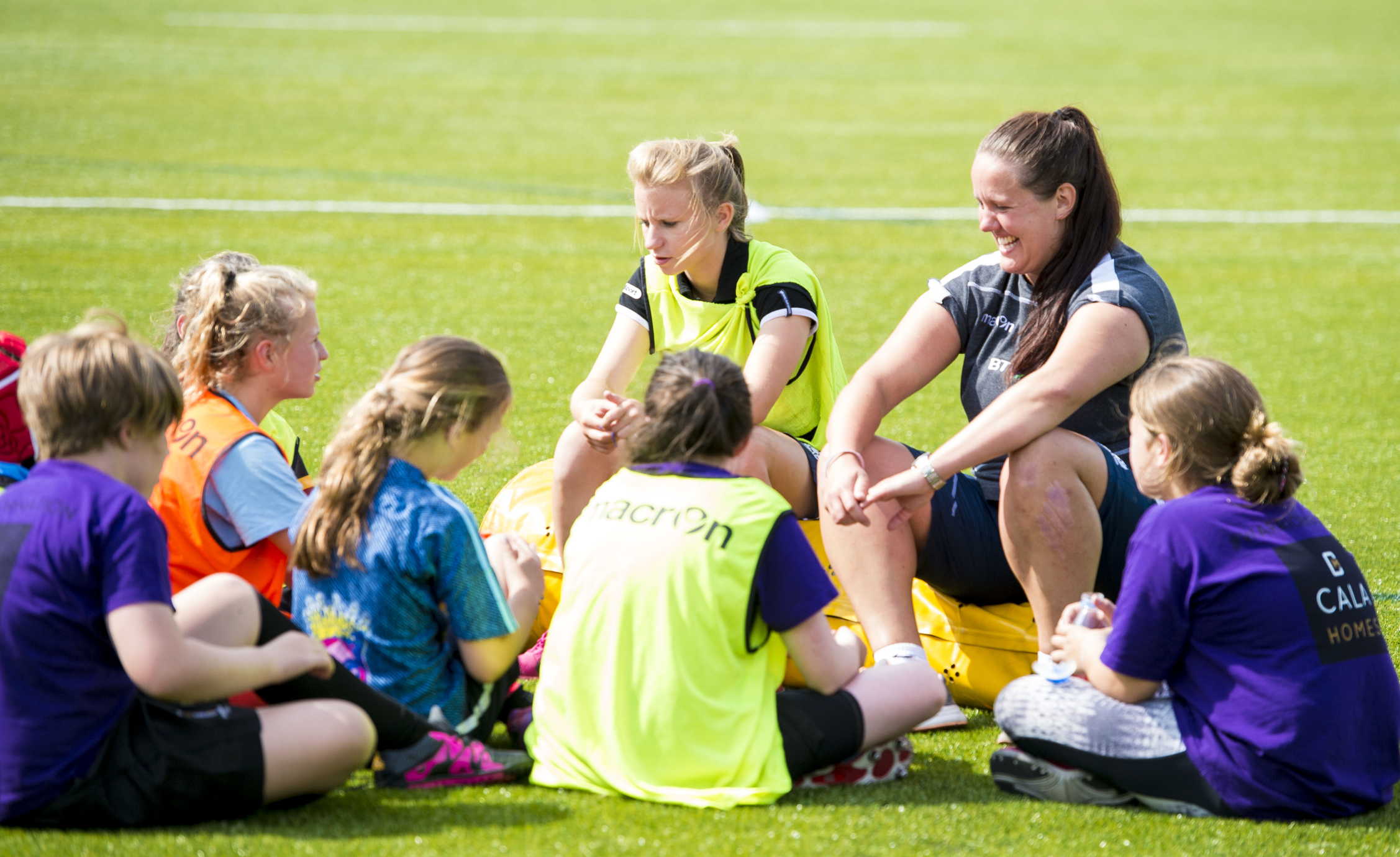Creating a positive learning environment
Creating a positive learning environment for the young player is crucial - to develop players who can make correct decisions during a match, the coaching environment should be conditioned to allow players to practice recognising situations, work out solutions and then react accordingly. It is here that coaches can make the most significant impact by encouraging players to try things and learn from their mistakes.

Here are some simple tips to help create a positive learning environment when coaching:
- Always have a purpose / objective to your session
- Question your playersto check for understanding to ensure they are aware of:
- What they are doing (the technical detail)
- How it relatesto the principles of play (the tactical detail)
- What the effect of their actions will be on play
- Allow your players to make mistakes and work out solutions to the problems with your support
- Observe and analyse critically
- Provide high quality positive and constructive individualised feedback against specific key factors
- Correct faults as a result and highlight good practice
- Work on your questioning skills to encourage learning. Rather than tell your players what to do (coach-centered coaching style), use effective questioning skills to encourage your players to reflect on their performance (player-centered coaching style)
- Reward effort (the process of trying hard) as well as achievement (achieving the outcome) as effort is a means to learning and improvement.
Good coaches will;
- Get the best out of ALL players(not just the skilled ones)
- Continually improve ALL players(not just the skilled ones)
- Develop techniques into skills(by placing players into game situations)
- Develop players' game-sense’ (their ability to understand the game and the consequence of their actions)
- See what is right and praise it
- See what is wrong, recognise why it is wrong, and be able to correct it.
Each coaching session should follow the following principles and be:
- Active
- Use small-sided games / activities that include everyone, are enjoyable, have an element of competition and develop players’ skills
- Encourage skill learning for everyone (slow starters may be successful later)
- Keep activity levels high - less talking, more activity
- Purposeful
- Only focus on one or two key factors at a time
- Involve players in their own learning through asking questions
- Allow all players to experience every playing position - the prop of today could be the scrum half of tomorrow! Rugby is a late specialisation sport - so, no need to define players into position too early - if you do so you may be limiting their development!
- Use a range of different coaching styles during sessions
- Review your session through self-reflection, discussion with other coaches and players
- Enjoyable
- Plan your sessions so that they are fun, varied, and enjoyable for all
- Consider the long-term effects of your coaching - avoid a 'win at all costs’ attitude
- Reward effort as well as achievement - ensure players understand that success comes from working hard to be better players- not just winning
- Promote respect for opponents, match officials and spectators
- Safe
- Ensure all activities are safe – all coaches should complete the RugbyReady and concussion management online learning modules available at https://passport.world.rugby/ as well as be suitably qualified to coach!
- Stop the session immediately if safety is being compromised
- Include warm-up and cool-down every time to ensure the players develop the physical competencies required to play the game
- Group children according to physical development, using height and weight as a yardstick
- Avoid matching children with very different development levels, especially in early development of contact
- Be consistent when dealing with poor behaviour.